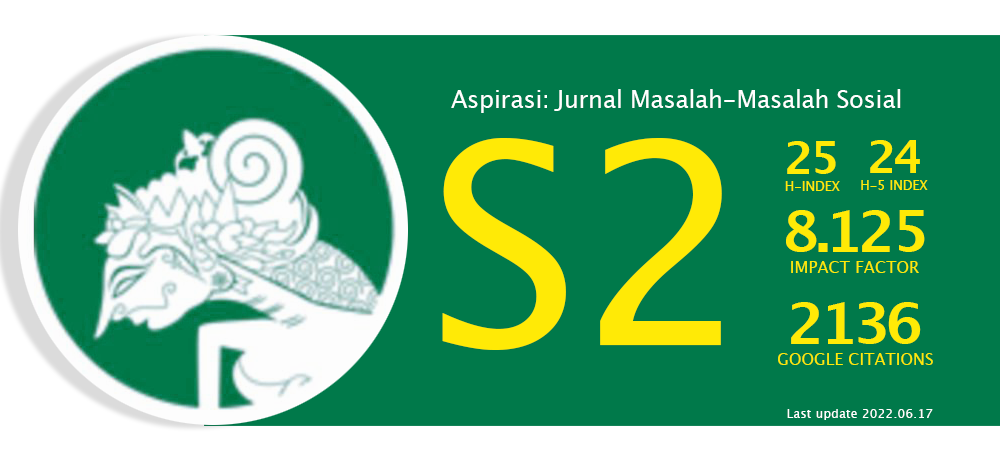Teacher’s and Students’ Perceptions Toward Teaching and Learning EFL at Sumba Hospitality Foundation
Abstract
Penelitian kualitatif ini bertujuan untuk mengetahui persepsi guru dan siswa terhadap pengajaran dan pembelajaran bahasa Inggris sebagai bahasa asing (EFL) di Sumba Hospitality Foundation. Persepsi guru dan siswa EFL berperan penting dalam proses belajar mengajar maka penelitian terkait hal ini harus dilakukan dalam banyak konteks. Penelitian ini dilakukan untuk mengetahui bagaimana guru dan siswa memandang pengajaran dan pembelajaran EFL di lingkungan mereka berdasarkan persepsi mereka sendiri. Dua kelas bahasa Inggris (masing-masing terdiri dari 15 siswa) telah diobservasi. Dari jumlah tersebut diambil 10 siswa secara acak dan seorang guru untuk dilibatkan dalam diskusi kelompok terpumpun serta wawancara terkait proses belajar mengajar di kelas. Berdasarkan analisis kualitatif, hasil temuan penelitian menunjukkan bahwa guru dan siswa EFL memiliki sikap positif terhadap pelajaran bahasa Inggris. Kedua belah pihak pada dasarnya berpendapat bahwa bahasa Inggris sangat dibutuhkan dalam bidang studi mereka, yaitu perhotelan, karena mereka pada akhirnya harus menggunakan bahasa Inggris sebagai bahasa utama yang digunakan para pelancong, tidak hanya untuk memahami permintaan pelanggan tetapi juga untuk berkomunikasi. Sebagai calon staf perhotelan, siswa telah diarahkan oleh guru bahasa Inggris mereka untuk memahami pentingnya belajar bahasa Inggris sebagai mata pelajaran sekolah, dan berkomunikasi dalam bahasa Inggris sebagai keterampilan yang dianggap penting. Pemahaman ini menggarisbawahi pentingnya inisiatif yang dapat dimulai DPR RI, khususnya Komisi X yang membidangi pendidikan dan pariwisata. Sebagai pengambil kebijakan, Komisi X harus mengetahui kondisi dan perkembangan di pusat pelatihan seperti Sumba Hospitality Foundation, khususnya mengenai praktik dan manajemen pengajaran dan pembelajaran bahasa Inggris.
Abstract
This qualitative study aims to discover teacher’s and students’ perceptions of teaching and learning English at Sumba Hospitality Foundation. Due to the fact that EFL teachers’ and students’ perceptions have a critical role in the teaching and learning process, more studies have to be conducted in contexts related to this issue. This study has been organized to investigate how both parties view EFL teaching and learning in their setting based on their perceptions. Two English classes (each consisting of 15 students) have been observed. Ten students were randomly chosen, and a teacher was invited to the focus group discussion (FGD) and an interview related to the teaching and learning process in the classroom. Based on the qualitative analysis,the findings indicate that both EFL teachers and students have positive attitudes toward English. Both parties recognize the urgent necessity of English within their field of study, namely hospitality, as it serves as the primary language for tourists, enabling them to comprehend customer demands and facilitate communication. As the future hospitality staff, students have been directed by their EFL teachers to understand the importance of learning English as a school subject and communicating in English as an essential communication skill. This understanding underscores the importance of initiatives spearheaded by the DPR RI, particularly Commission X, responsible for education and tourism. As policymakers, Commission X must be apprised of the conditions and developments at training centers like Sumba Hospitality Foundation, particularly regarding English teaching and learning practices and management.
Keywords
Full Text:
PDFReferences
Agirdag, O., & Vanlaar, G. (2018). Does more exposure to the language of instruction lead to higher academic achievement? A cross-national examination. International Journal of Bilingualism, 22(1), 123–137.
Agustin, Y. (2015). Kedudukan Bahasa Inggris sebagai bahasa pengantar dalam dunia pendidikan. Deiksis, 3(04), 354–364.
Al Zoubi, S. (2018). The impact of exposure to English language on language acquisition. Journal of Applied Linguistics and Language Research, 5(4), 151–162.
Andayani, E. S. (2022). The importance of learning and knowing English in Higher Education in Indonesia. Research and Development Journal of Education, 8(1), 372–379. http://dx.doi.org/10.30998/rdje.v8i1.13315
Asrori, M. (2009). Psikologi pembelajaran. Wacana Prima.
Benson, P. (2001). Teaching and researching autonomy in language learning. Pearson Education.
Cummins, J. (2009). Bilingual and immersion programs. In M. H. Long & C. J. Doughty (Eds.), The Handbook of Language Teaching (pp. 159–181). Wiley-Blackwell. https://doi.org/10.1002/9781444315783.ch10
d’Ydewalle, G., & De Bruycker, W. (2007). Eye movements of children and adults while reading television subtitles. European Psychologist, 12, 196–205.
De Wilde, V., Brysbaert, M., & Eyckmans, J. (2020). Learning English through out-of-school exposure. which levels of language proficiency are attained and which types of input are important? Bilingualism, 23(1), 171–185. https://doi.org/10.1017/S1366728918001062
Dhanasobhon, S. (2007). English language teaching dilemma in Thailand. Kasetsart Educational Review, 22(1), 53–59. https://kukrdb.lib.ku.ac.th/journal/KERJ/search_detail/result/200913
Dulay, H. C., Burt, M. K., & Krashen, S. D. (1982). Language two. Oxford University Press.
Fadila, D., & Lestari, S. (2013). Perilaku konsumen. Citra Books Indonesia.
Fakeye, D. O. (2010). Students’ personal variables as correlates of academic achievement in English as a Second Language in Nigeria. Journal of Social Sciences, 22(3), 202–211.
Ghaderpanahi, L. (2012). Using authentic aural materials to develop listening comprehension in the EFL classroom. English Language Teaching Journal, 5(6). 146–153. http://dx.doi.org/10.5539/elt.v5n6p146
Handayani, S. (2016). Pentingnya kemampuan berbahasa Inggris sebagai dalam menyongsong Asean Community 2015. Jurnal Profesi Pendidik, 3(1), 102–106.
Imsa-Ard, P. (2020). Motivation and attitudes towards English language learning in Thailand: A large-scale survey of Secondary School students. rEFLections, 27(2), 140–161.
Kinginger, C. (2011). Enhancing language learning in study abroad. Annual Review of Applied Linguistics, 31, 58–73, https://doi.org/10.1017/S0267190511000031
Kotler, P. (2009). Manajemen pemasaran. Indeks.
Lambine, C. (2008). English just isn’t a foreign language anymore. Språk og språkundervisning, 2, 5–7.
Manalu, S. A. (2014). The relationship among motivation, attitudes, and learning achievement of English as a Foreign Language at Del Institute of Technology. SELT Padang, 379–385.
Nunan, D. (1988). Language teaching: Scheme for teacher education syllabus design. Oxford Univeristy.
Peregoy, S. F., & Boyle, O. F. (2005). Reading, writing, and learning in ESL: A Resource Book for K12 Teachers. Pearson/Ally & Bacon.
Prayogo, J. A. (2022). English language teaching in Indonesia in the 21st century: what needs reinforcing and enhancing for the teachers. KnE Social Sciences, 2022, 12–22. https://doi.org/10.18502/kss.v7i7.10645
Setyaningrum, A. (2016). The role of English education as the solution of social welfare problem in Indonesia. QIJIS: Qudus International Journal of Islamic Studies, 4(2), 186–200. http://dx.doi.org/10.21043/qijis.v4i2.1789
Sivertzen, T. G. (2013). The role of input in early second language acquisition: a study of the long-term effects of initial extra English input on Norwegian 4th graders receptive vocabulary [Master's Thesis]. Norwegian University of Science and Technology NTNU.
Soleimani, H., & Somayeh, H. (2013). Iranian medical students’ attitudes towards English language learning. International Research Journal of Applied and Basic Sciences, 4(11), 3816-3823.
Sugihartono, Fathiyah, K. N., Setiawadi, F. A., Harahap, F., & Nurhayati, S.R. (2007). Psikologi pendidikan. UNY Pers.
Thoha, M. (1999). Perilaku organisasi: konsep dasar dan aplikasinya. Grafindo Persada.
Webb, S. (2010). A corpus-driven study of the potential for vocabulary learning through watching movies. International Journal of Corpus Linguistics, 15(4), 497–519.
Wilkinson, S. (1998). On the nature of immersion during study abroad: some participant perspectives. Frontiers: The Interdisciplinary Journal of Study Abroad, 4(2), 121–138. https://doi.org/10.36366/frontiers.v4i1.65
DOI: https://doi.org/10.46807/aspirasi.v15i1.4201
Refbacks
- There are currently no refbacks.











